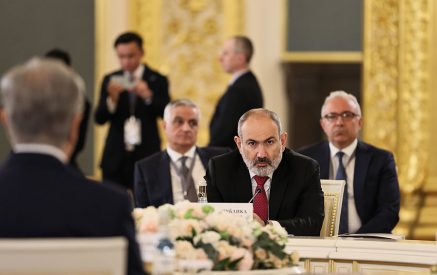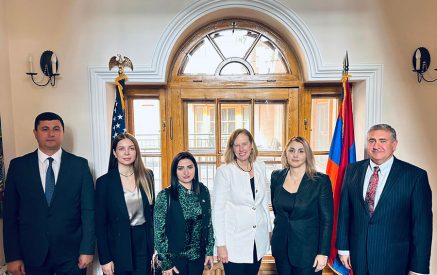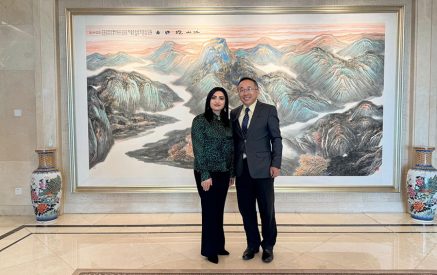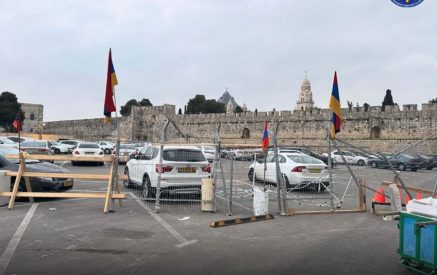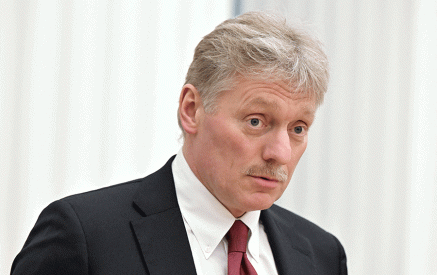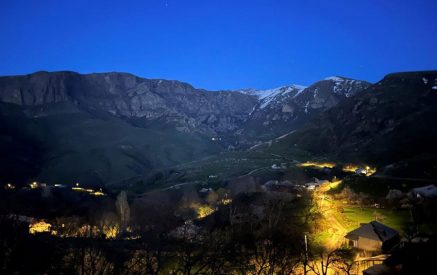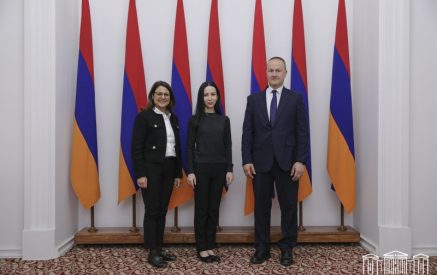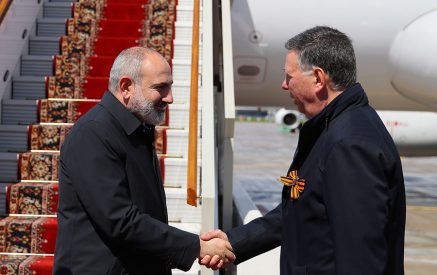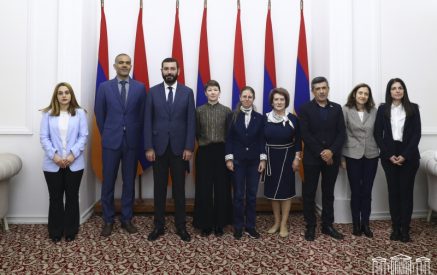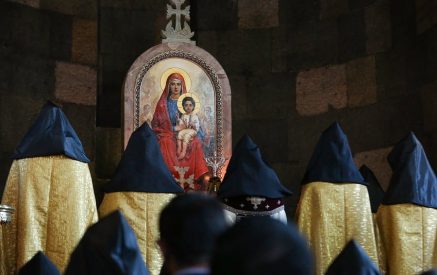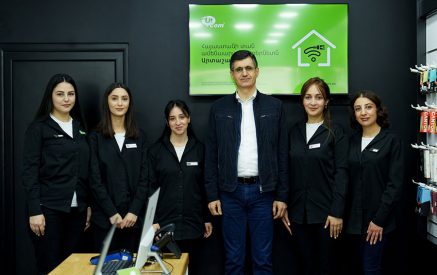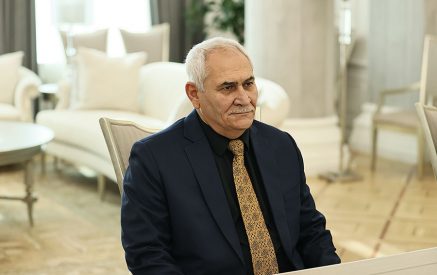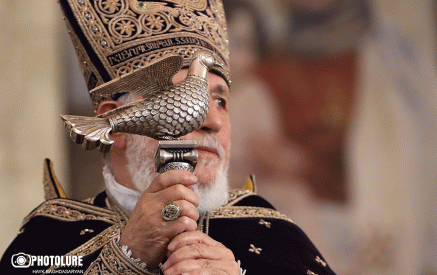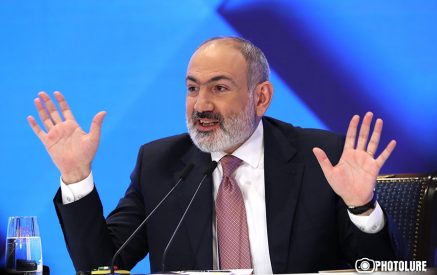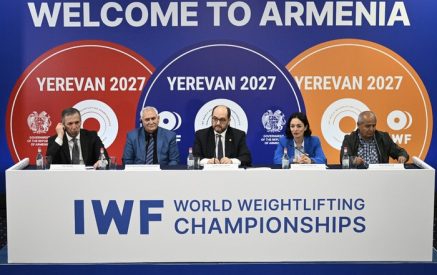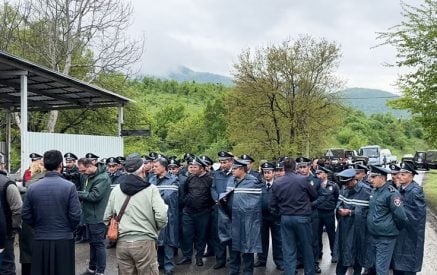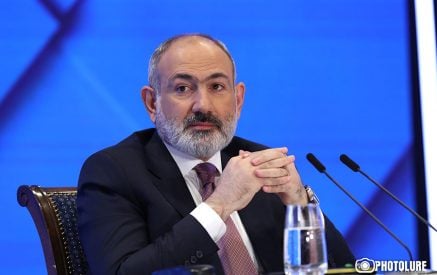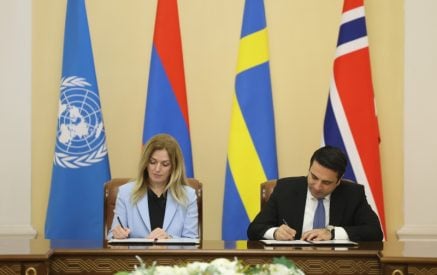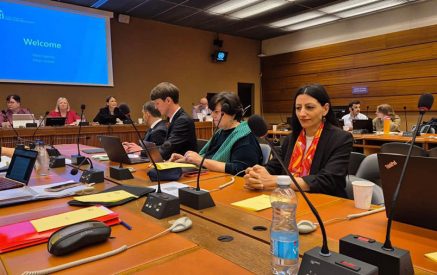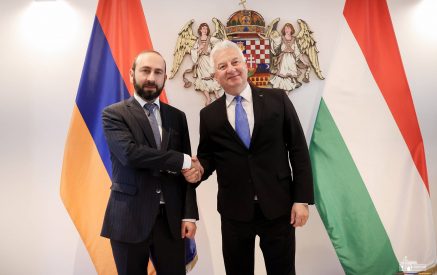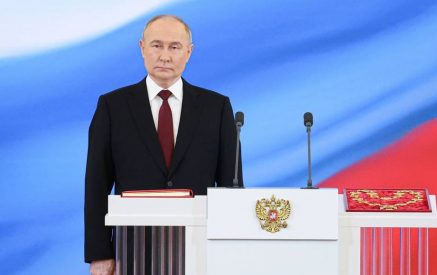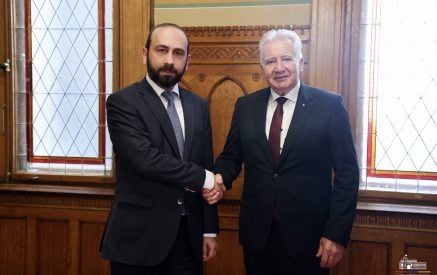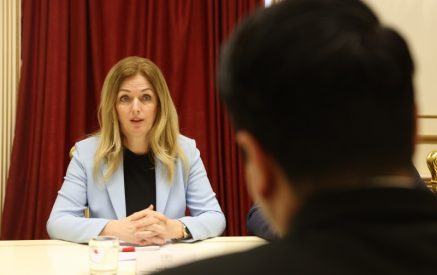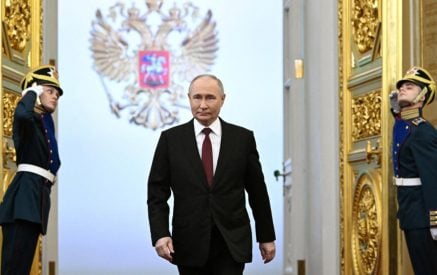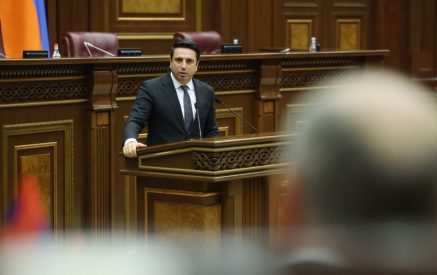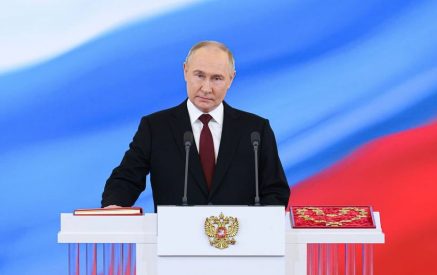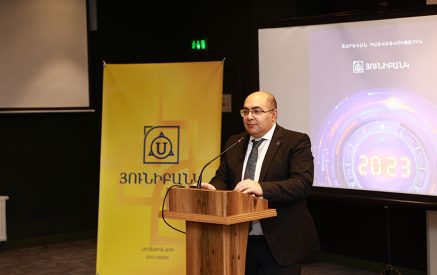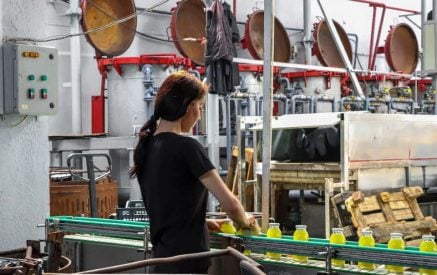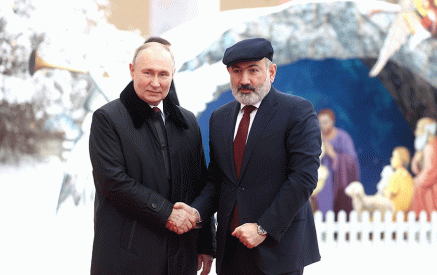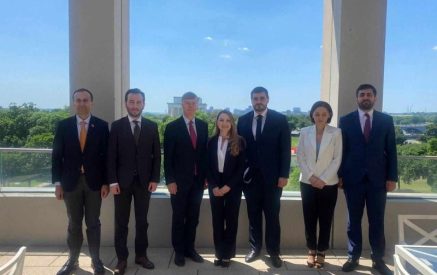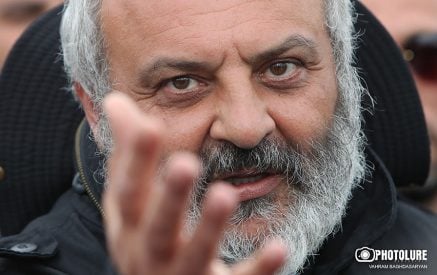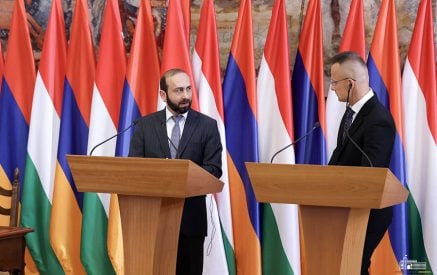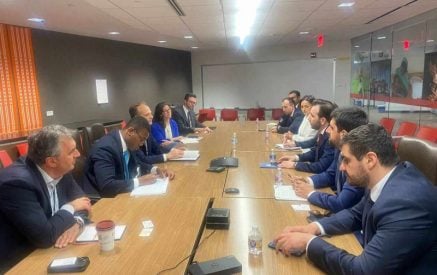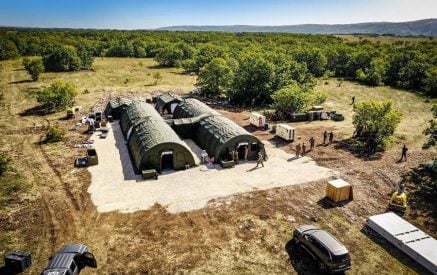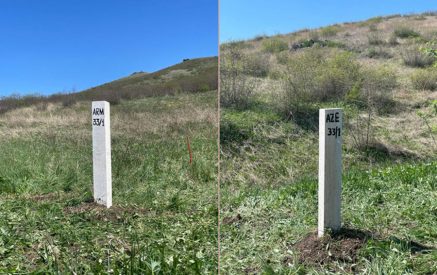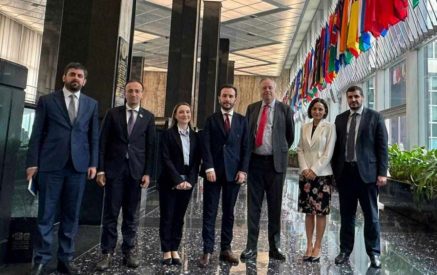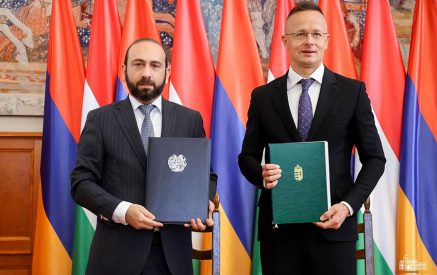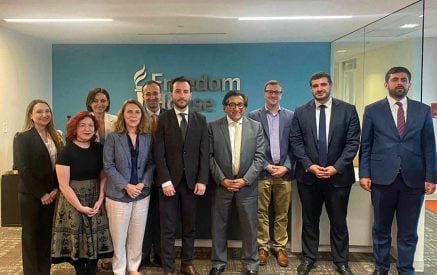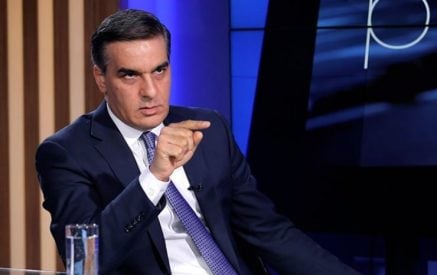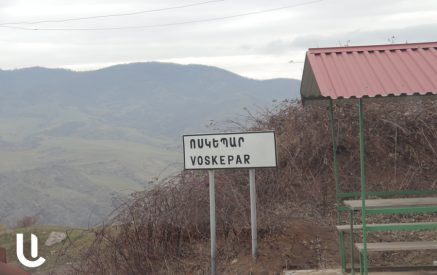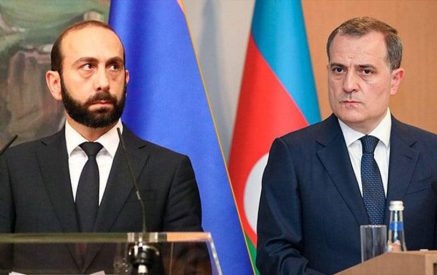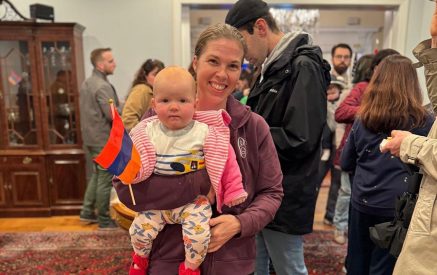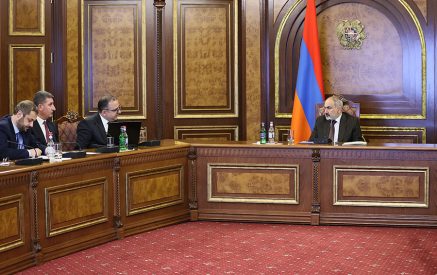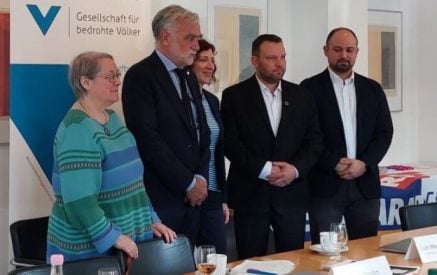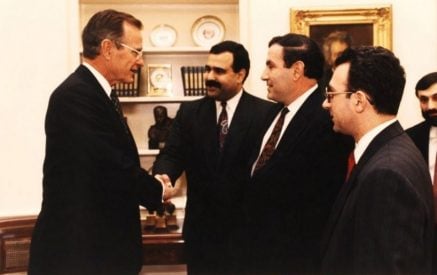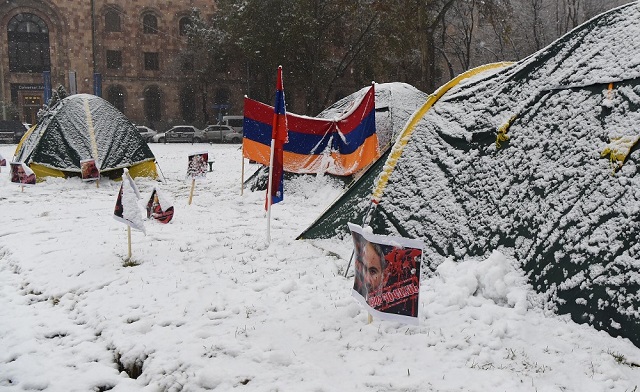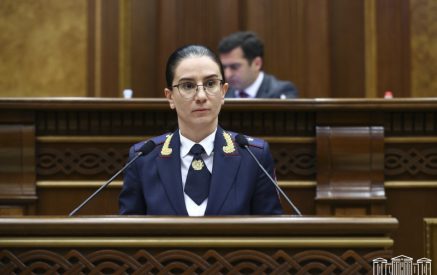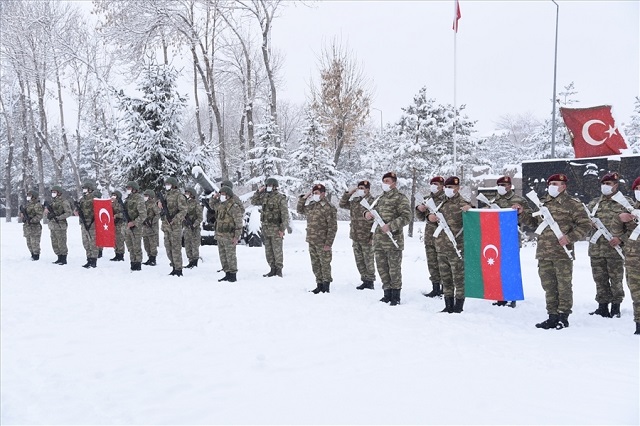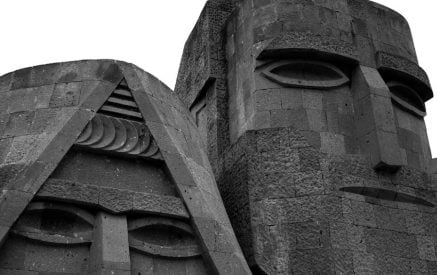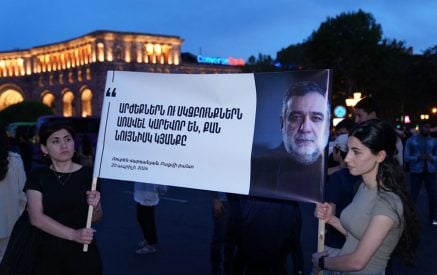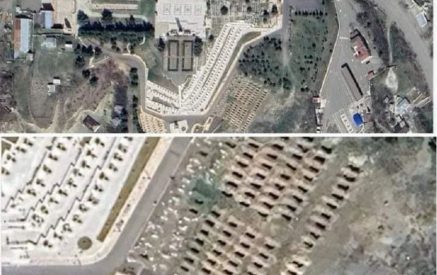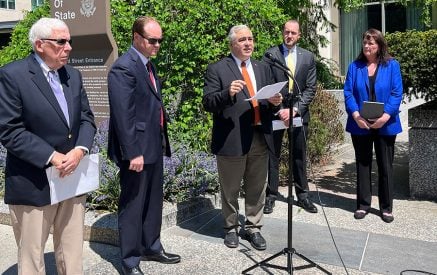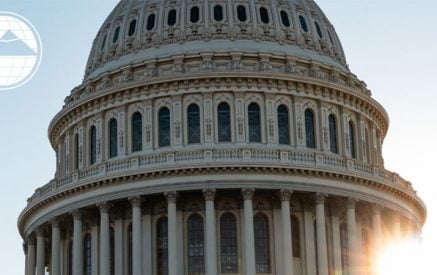The Armenian Weekly. Russian Foreign Minister Sergey Lavrov stated this week that the status of Artsakh is not an immediate priority in the aftermath of the 2020 Artsakh War.
Lavrov addressed several questions about the Artsakh conflict during an annual review press conference on January 18. In response to a question from Azerbaijani media about their protests of visits to Artsakh by Armenian officials, Lavrov said that he saw “no reason why contacts at this level should be prevented,” stating that the Lachin corridor is protected for this purpose. “Armenian officials are involved in providing humanitarian assistance to Nagorno-Karabakh (Artsakh), which does not cause any negative emotions in Baku,” he said. “The fact that some Armenian officials are making rather politicized statements in Karabakh is causing tension. I think it would be better to avoid this.”
The question arose since Azerbaijani political leaders rebuked Armenian Foreign Minister Ara Ayvazyan for his visit to Artsakh earlier this month. The head of the Press Department of the Ministry of Foreign Affairs (MoFA) of Azerbaijan Leyla Abdullayeva called the visit “illegal” and violative of the November 9 trilateral ceasefire agreement. Armenian MoFA spokesperson Anna Naghdalyan denounced these allegations as “completely false and baseless” since “the trilateral statement of November 9 aimed at establishing a ceasefire and deploying Russian peacekeepers in Artsakh does not contain any agreement on Artsakh’s status.”
Lavrov asserted this week that Artsakh’s status should be resolved in the future by the co-chairs of the OSCE Minsk Group. “Status issues will be resolved all the more easily, the sooner the assurances voiced from Baku and Yerevan that the main thing is to improve the daily life of all ethnic and religious communities that coexisted in Karabakh and restore peaceful good-neighborly living on the ground,” he said. He dismissed suggestions that Artsakh should be included in Russia as “exotic.”
Read also
In response to a question from Armenian broadcasting company Shant TV about securing the return of Armenian prisoners of war, Lavrov attributed the problem to Armenia’s delay in providing lists of missing persons they want to rescue from captivity to Russia following the signature of the ceasefire agreement. “Azerbaijan gave such lists. They were insignificant…all those mentioned in the Azerbaijani lists were returned,” he said. “On the Armenian side, the lists were not presented immediately or in full.” The Foreign Minister confirmed his knowledge of at least 62 Armenian soldiers and civilians currently detained in Azerbaijan based on talks with his Armenian counterpart.
Armenian human rights activists have accused Azerbaijan of refusing to cooperate with Russia and the International Committee of the Red Cross (ICRC) in the process of exchanging POWs, such as by withholding information about the number and identities of detained persons. According to human rights lawyer Siranush Sahakyan, who represents Armenian POWs at the European Court of Human Rights, there are 120 confirmed cases (and many more unconfirmed) of Armenian prisoners and hostages in Azerbaijan, two of whom are women and most of whom were captured after November 10.
Of those 120, 62 are soldiers who were captured following the Azerbaijani attack in the southern Hadrut district of Artsakh on the villages of Khtsabert and Hin Tagher a month after the end of the war. On December 31, 2020 Azerbaijani President Ilham Aliyev stated that the soldiers were not prisoners of war, but rather terrorists facing criminal charges.
Following Lavrov’s press conference, Deputy Prime Minister Tigran Avinyan shared that while information about POWs is not published due to the extremely sensitive nature of the topic, lists of Armenian POWs were “submitted regularly in several stages” to Russia and the ICRC in December of 2020.
Armenian Human Rights Defender Arman Tatoyan criticized the Armenian government for refusing to publicize information about POWs, asserting that publishing the number of detained persons will “significantly increase international pressure on Azerbaijan to release and return the captives.” He also submitted a letter this week to the OSCE Minsk Group Co-Chairs and OSCE Chairperson Ambassador Anjay Kaspshik stating that the “return of captives must be ensured immediately following the cessation of military operations” and that Azerbaijan delays the process of the return of captured soldiers by “abusing the legal process, artificially giving [POWs] the status of accused or suspect persons, presenting them as terrorists and using detention as punishment.” Artsakh Minister of Foreign Affairs David Babayan additionally sent letters to specialized bodies in the United Nations and Council of Europe as well as the OSCE Minsk Group Co-Chairs underscoring that “international humanitarian law, and Geneva Conventions, in particular, continue to apply after the signing of the statement on cessation of hostilities.”
Babayan also met with leaders of the Armenian Revolutionary Federation (ARF) this week in Artsakh. ARF Supreme Council of Armenia Chairman and coordinator of the National Salvation Movement Ishkhan Saghatelyan and ARF Artsakh Central Committee Chairman and member of Parliament Davit Ishkhanyan discussed the defense of Artsakh’s borders and the socio-economic problems facing the region. “Artsakh is the priority of the ARF. We will spare no effort to participate in different areas and stand up, regardless of who is in power,” Saghatelyan told reporters. “Losing Artsakh means losing Armenia and closing the pages of Armenian history. The ARF will not allow that.”
Back in Yerevan, the National Salvation Movement continues to protest for the resignation of Armenian Prime Minister Nikol Pashinyan, despite the colder temperatures. ARF activists have been camping out in Republic Square in tents every night, insisting that they will not end their struggle until Pashinyan resigns. The movement formed from 17 opposition political parties after Pashinyan signed the November 9 ceasefire agreement to call for the election of a new administration.
Meanwhile, the Armed Forces of Azerbaijan and Turkey will be conducting large-scale joint military exercises in the eastern Turkish province of Kars, which borders Armenia. Azerbaijan and Turkey previously participated in joint military exercises between July 29 and August 10 of 2020 in Baku and the Nakhichevan Autonomous Republic two weeks after Azerbaijan’s attack on the Armenian province of Tavush. At the end of that drill, Turkey left military equipment and personnel in Azerbaijan that were later deployed in the full-scale war against Armenia and Artsakh.
Air transportation, possibly for the purpose of delivering military equipment, also resumed between Azerbaijan and Turkey, paralleling the spike in air transportation activity before the 2020 Artsakh War. Between January 6 and 9, at least eight A400 and one C-130 flights took place between Ankara and Baku and back. While there have been no official announcements regarding the purpose of these flights, rumors have been circulating that Turkey is preparing to open military bases in the cities of Ganja, Gabala and Lenkoran.
The joint military exercises, which will take place between February 1-12, are intended to prepare the armies to conduct hostilities in severe weather conditions. Units will practice ground and air assaults, airdrops, airborne operations and logistics support. Azerbaijani units have already arrived in Kars for the drill.
Since the end of the war, Turkey has been collaborating with Russia on the establishment of a joint center in Artsakh, where Turkish and Russian troops will be deployed to monitor the implementation of the ceasefire.

